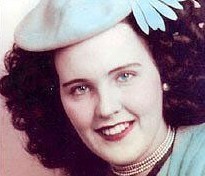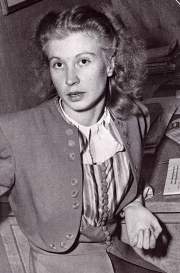Seventy-seven years ago, on Wednesday, January 8, 1947, Robert ‘Red’ Manley drove to the home of Elvera and Dorothy French in Pacific Beach, in the San Diego area, to pick up a young woman he met a month earlier. Her name was Elizabeth Short.
Red was a twenty-five-year-old salesman and occasional saxophone player, with a wife, Harriette, and 4-month-old baby daughter at home. The couple married on November 28, 1945. They lived in a bungalow court in one of L.A.’s many suburbs.
Red enlisted in the Army on June 24, 1942. In January 1945, he entered a hospital for treatment of a non-traumatic injury, and the Army discharged him in April of the same year for medical reasons
Maybe his injury made it difficult for him to adjust to marriage and parenthood. He said that he and Harriette had “some misunderstandings.” Restless and feeling unsure about his decision to marry, Red decided to “make a little test to see if I were still in love with my wife.” The woman Red used to test his love was twenty-two-year-old Elizabeth Short.

On a work trip to San Diego, Red met Beth. She stood a street corner and appeared to need a ride. At first, she seemed reluctant to get into his car. But in an instant, she changed her mind. She introduced herself as Beth Short, and they struck up a conversation. When Red returned to Los Angeles, the two corresponded.
Dorothy French met Beth on the night of December 9, 1946 at the all-night movie theater, the Aztec, on Fifth Avenue. Dorothy worked as a cashier at the ticket window and she noticed Beth, who seemed at loose ends. When her shift ended at 3 a.m., Dorothy offered to take Beth back to the Bayview Terrace Navy housing unit she shared with her mother and a younger brother. Beth was glad to abandon the theater seat for a comfortable sofa.

Weeks passed, and Elvera and Dorothy grew tired of Beth’s couch surfing. She did not contribute to the household, she didn’t even pay for groceries. She received a money order for $100 from a former boyfriend, Gordon Fickling, yet she spent much of her time compulsively writing letters, many of which she never sent.
One of the unsent letters was to Gordon. In the letter dated December 13, 1946, Beth wrote,
“I do hope you find a nice girl to kiss at midnight on New Year’s Eve. It would have been wonderful if we belonged to each other now. I’ll never regret coming West to see you. You didn’t take me in your arms and keep me there. However, it was nice as long as it lasted.”
The French family had another complaint about their houseguest. Despite her claims, Beth never looked for work. Beth wrote to her mother, Phoebe, that she was working for the Red Cross, or in a VA Hospital, but she lied. Her letters home never revealed her transient lifestyle—nothing about couch surfing, borrowing money to eat, or accepting rides from strange men.

Beth could have found a job if she wanted one. She worked in a delicatessen in Florida as a teenager and at the post exchange (PX) at Camp Cooke (now Vandenberg Air Force Base). Red arranged with a friend of his to get her a job interview—but she didn’t follow-up.
When Red heard from his friend that Beth was a no-show for the job interview, he wrote to her to find out if she was okay. She said she was fine but didn’t like San Diego; she preferred Los Angeles and wanted to return there. Red said he’d help her out.
The drive from San Diego to Los Angeles was Red’s love test. If nothing happened, then he would know that he and Harriette would stay together. Kismet. But if he and Beth clicked, he’d have a decision to make.
Beth and Red weren’t on the road for long before they stopped at a roadside motel for the night. They went out for dinner and drinks before returning to their room to go to bed. Did Red have butterflies in his stomach? How did he want the love test to turn out?
Red must have realized the decision was Beth’s. They never shared more than a kiss. She spent the night in a chair and he took the bed.
The pair left the motel at about 12:20 p.m. on January 9, 1947, for Los Angeles. What did Beth and Red talk about during the couple of hours that it took them to drive back to Los Angeles from San Diego? Red noticed some scratches on her arms and asked her about them. She invented a story about a possessive boyfriend—an Italian man with black hair living in San Diego—who supposedly scratched her. Beth most likely made the scratches herself. She lied to Red a few times more before their day together ended.

Following a platonic night in the motel room–Red passed his self-administered love test. Lucky Harriette. He still had a problem. He had not called Harriette for a few days. How would he explain his silence? Any guy capable of devising a ridiculous love test could come up with an excuse for being incommunicado for a couple of days.
In my mind’s eye, I see Beth and Red seated across from each other on the bench seat in his Studebaker, each lost in thought. Beth may have wondered what she’d do once she hit L.A. Maybe she’d go to friends in Hollywood. If she was lucky, someone would have an empty bed for her. Her immediate difficulty was Red. How would she get away from the well-meaning guy for whom she felt nothing?
Once they arrived in the city, Beth told Red that she needed to check her luggage at the bus depot. He took her there and Beth was ready to wave goodbye to him and be on her way–but he wouldn’t leave. She insisted she would be fine, but he wouldn’t hear of it.
Beth had a few minutes while she checked her bags to concoct a plan to ditch her shadow. When they returned to his car, she told him she needed to go to the Biltmore Hotel to wait for her sister, Virginia. She lied. Virginia lived in Oakland, hundreds of miles to the north.
Red drove her several blocks to the Biltmore Hotel. The main lobby was on Olive Street, opposite Pershing Square. Beth thanked Red. He had been a gentleman. He’d paid to have taps put on the heels and toes of her pumps, and of course he’d paid for meals and the motel room. She thought he would drive off and leave her, but again, he said that he didn’t feel comfortable putting her out of the car on her own.

He parked, and the two of them waited in the Biltmore’s lobby for a couple of hours. Finally, Red realized he couldn’t wait any longer. He said he had to go. She told him she would be fine, and that she expected her sister to arrive at any moment.
Red left her at around 6:30 p.m. Beth watched him go–gave him a few minutes, and then she exited the hotel and turned south down Olive Street.
It is possible that she was heading to the Crown Grill at Eighth and Olive. She’d been there before and perhaps she hoped to bump into someone she knew; after all, she needed a place to stay.

When asked if they’d seen Beth, most of the patrons were reluctant to talk to the police because the bar led a double life. By day, it catered to the lunch crowd. Dark enough to be cozy for cocktails for a man escorting a woman, not his wife. By night, the clientele shifted to gay men. With homosexuality being illegal, the opportunities for men to meet were limited.
No one who will talk could say for sure that Beth was in the bar on the 9th—and if she was there, no one saw her leave.
That no one missed Beth is tragic. She had no family here, and no close friends. She was the perfect prey. Without any credible sightings, it is probable that Beth’s killer held her captive from January 9th until the morning of January 15th, when he took her life. What did he say to her? Did she plead for her life? It is absolutely horrifying to consider.
NEXT TIME: A werewolf on the loose.
